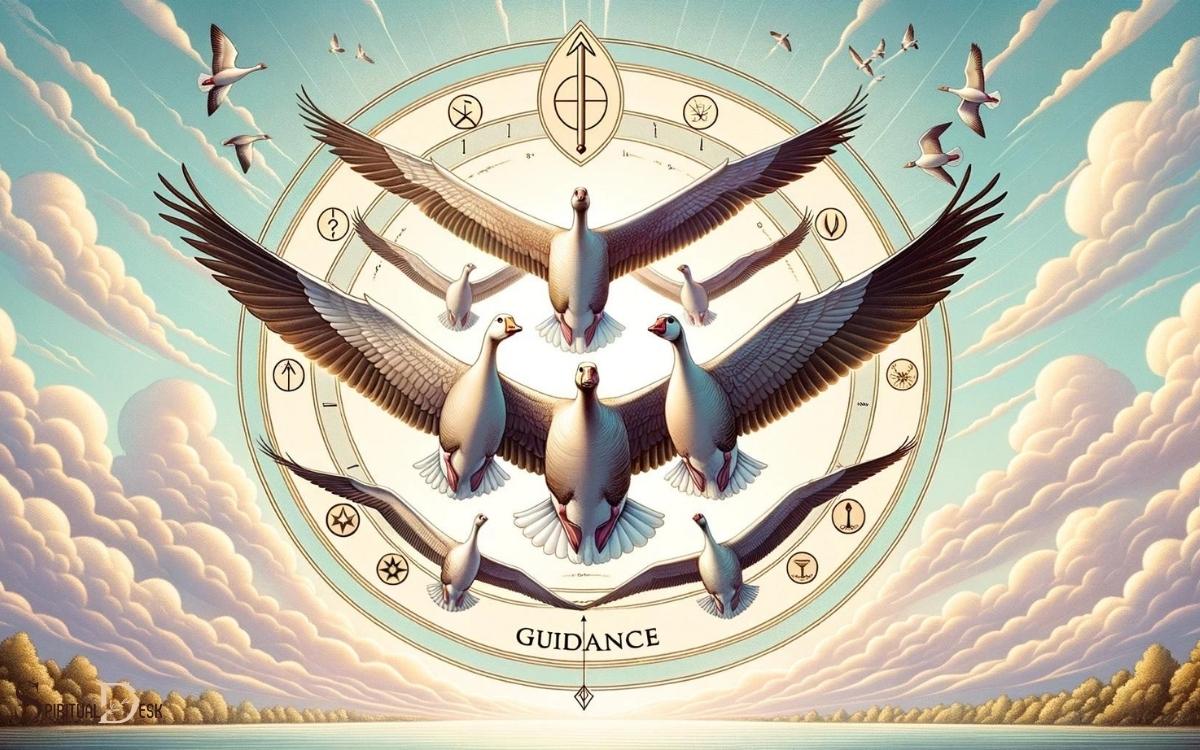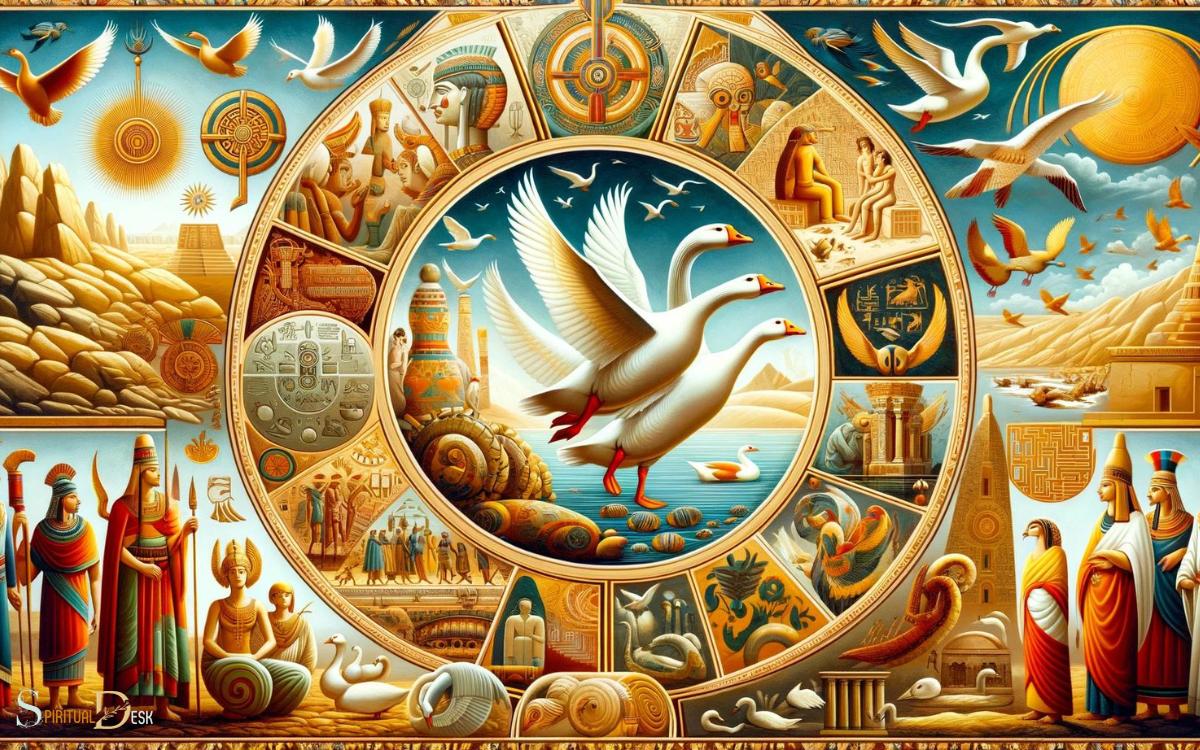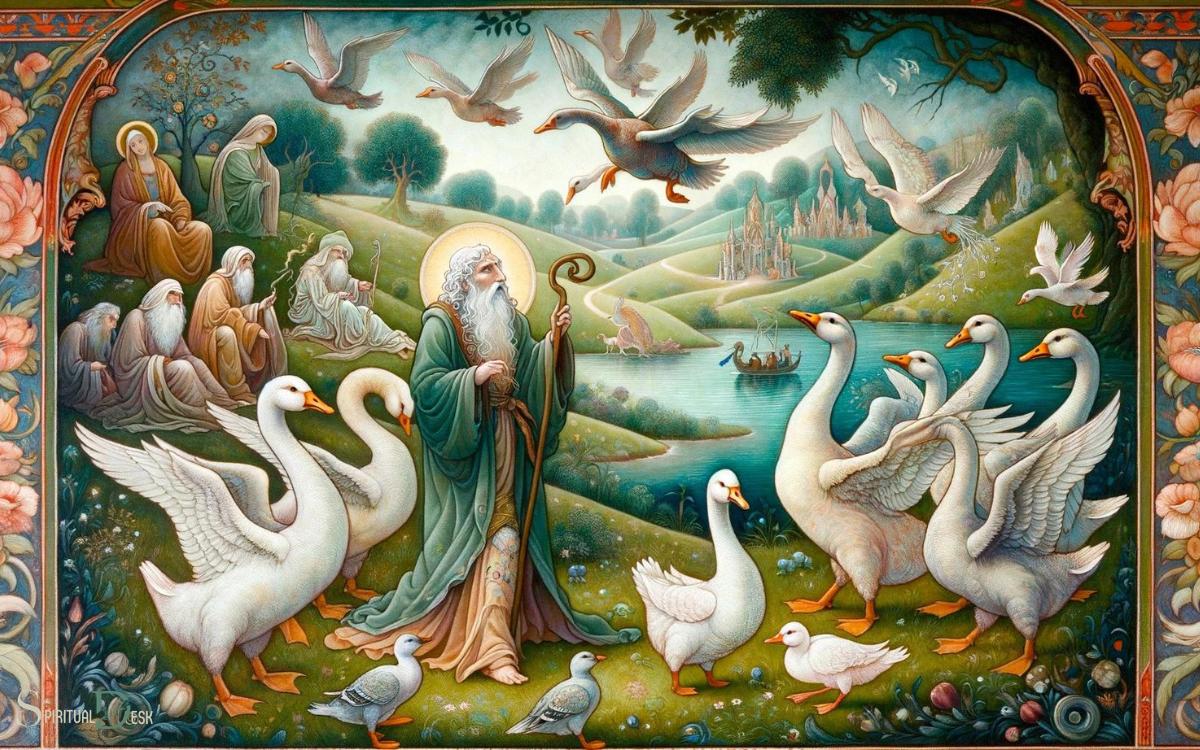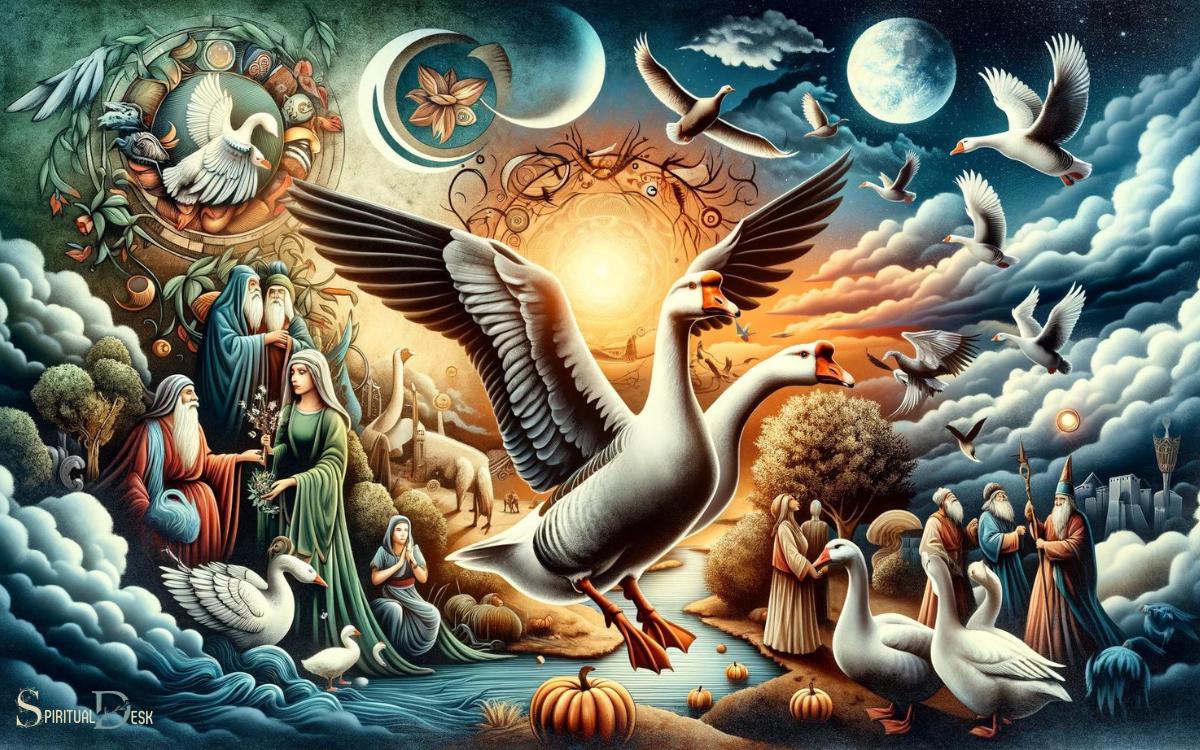What is the Spiritual Meaning of Geese? Teamwork!
The spiritual meaning of geese relates to migration, teamwork, communication, and fidelity. They symbolize guidance in life’s journeys, showcase community bonds, and cooperation in V-formations, and represent loyalty and commitment in relationships.
Geese are imbued with spiritual symbolism that has been recognized across various cultures and spiritual practices.
For instance:
Examples of spiritual associations with geese can be found in Native American beliefs where they are seen as symbols of communication and the sacred circle of life, and in Celtic mythology where they are linked to war and valor due to their protective nature.

Key Takeaway
Ancient Cultural Symbolism

Ancient cultures regarded geese as symbols of loyalty and vigilance, representing qualities highly valued in their societies.
- In ancient Egypt, the goose was associated with the god Geb, symbolizing his watchfulness and protective nature.
- The Romans revered geese for their role in saving the Capitol from a surprise attack by Gauls, honoring them as guardians.
- In Greek mythology, geese were linked to the goddess of love, Aphrodite, and were seen as loyal companions.
- In Chinese culture, geese symbolized marital fidelity and fidelity in friendships, reflecting the importance of loyalty in relationships.
The spiritual significance of geese as symbols of loyalty and vigilance has transcended time and continues to be revered in modern culture for their representation of steadfast commitment and watchful protection.
Geese in Spiritual Practices

Geese have long been revered in spiritual practices for their symbolization of loyalty and vigilance, playing a significant role in various cultural and religious traditions.
In many spiritual belief systems, geese are seen as messengers of the spirit world, possessing the ability to travel between the physical and spiritual realms. They are often associated with qualities such as teamwork, determination, and protection.
In Native American traditions, geese are seen as sacred animals, representing the connection between the physical and spiritual worlds.
In some Eastern cultures, geese are believed to embody purity and enlightenment, often depicted alongside spiritual figures. The migratory patterns of geese are also seen as a symbol of spiritual journey and guidance.
The Significance of Geese Migration
The migration patterns of geese are widely regarded as a symbol of spiritual journey and guidance, continuing the theme of divine communication and enlightenment from the previous subtopic.
Geese embark on long and arduous journeys, often spanning thousands of miles, demonstrating resilience, cooperation, and determination.

In many spiritual traditions, this annual migration represents the quest for spiritual growth and the pursuit of higher knowledge.
The synchronized V-formation flight of geese is seen as a metaphor for the support and unity found within spiritual communities.
Observing geese in migration can inspire individuals to seek their own path, trust their instincts, and embrace the unknown with courage.
Ultimately, the significance of geese migration serves as a reminder of the interconnectedness of all living beings and the enduring nature of the spiritual journey.
Geese as Messengers and Guides
Embarking on their annual migration, geese have been revered in spiritual traditions as messengers and guides, symbolizing the enduring pursuit of higher knowledge and the interconnectedness of all living beings.
In various cultures, geese are seen as symbols of communication from the spirit world, carrying messages between realms. They are also regarded as guides, leading the way for others to follow.

Geese exhibit strong teamwork, cooperation, and unity as they navigate their migrations, teaching us the value of working together and supporting one another.
Their honking is believed to represent encouragement and support, reminding us to stay connected and vocal in our communities.
As messengers and guides, geese inspire us to seek wisdom, embrace unity, and navigate life’s journeys with resilience and grace.
Geese in Mythology and Folklore

In various mythologies and folklore traditions, geese have been depicted as symbols of wisdom, protection, and divine guidance.
- In Greek mythology, geese were associated with the goddess Athena, who was revered as the goddess of wisdom and strategic warfare.
- The story of the Capitoline geese in ancient Rome also portrays geese as protectors, as their honking alerted the Romans to an impending attack by the Gauls.
- In Chinese folklore, geese are seen as symbols of marital fidelity and happiness, often depicted in artwork as a representation of harmonious relationships.
- Furthermore, in Celtic tradition, geese are believed to possess the ability to travel between the physical and spiritual realms, making them symbols of transition and guidance.
Across different cultures, geese hold a revered place in mythology and folklore, embodying various virtues and divine significance.
Conclusion
Geese hold significant spiritual symbolism across various cultures and traditions. From their representation as messengers and guides to their role in ancient mythology and folklore, geese are seen as spiritual beings that carry important messages and guidance for individuals on their spiritual journeys.
Just as geese migrate together in a synchronized and harmonious manner, so too do individuals seek spiritual connection and guidance in their lives, following the path set forth by these majestic birds.






